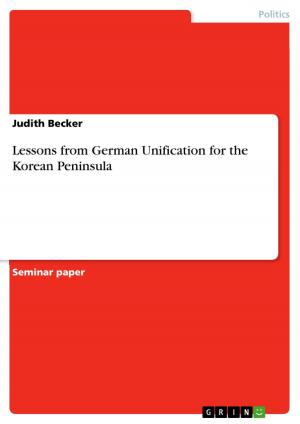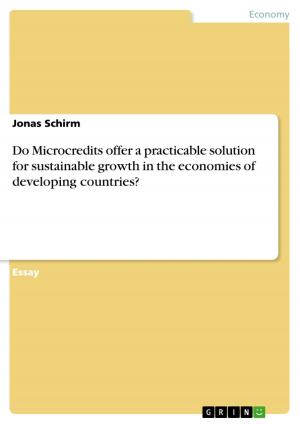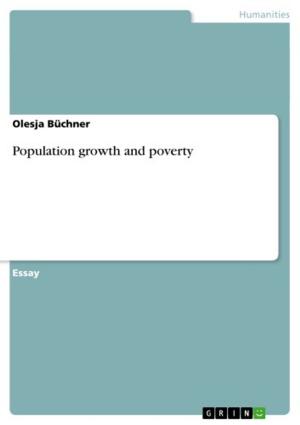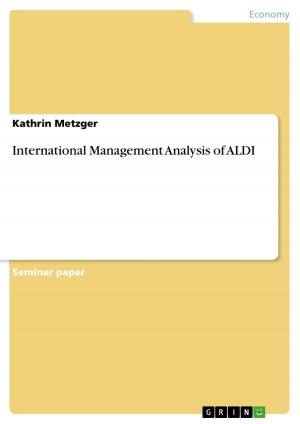Donor harmonisation, Ownership and Aid Effectiveness
A critical analysis of the Multi Donor Budget Support in Ghana
Nonfiction, Social & Cultural Studies, Social Science| Author: | Florian Meyer | ISBN: | 9783640785322 |
| Publisher: | GRIN Publishing | Publication: | December 27, 2010 |
| Imprint: | GRIN Publishing | Language: | English |
| Author: | Florian Meyer |
| ISBN: | 9783640785322 |
| Publisher: | GRIN Publishing |
| Publication: | December 27, 2010 |
| Imprint: | GRIN Publishing |
| Language: | English |
Master's Thesis from the year 2010 in the subject Politics - International Politics - Topic: Development Politics, grade: 1,0, University of Birmingham (International Development Department), language: English, abstract: This paper deals with the aid instrument budget support and discusses its strengths and weaknesses in terms of the expected effects of the instrument in areas such as donor harmonisation, ownership, aid effectiveness and accountability. By presenting the international context in which the rise of program-based approaches, such as budget support, took place and by summarizing the actual debate about the instrument and its effectiveness, the paper elaborates a set of assumptions and hypothesises which are affecting the overall performance of the instrument and have to be addressed based on the specific country context. In consequence, it examines and tests these assumptions by critically analyzing the Multi Donor Budget Support in Ghana based on a field study conducted in Accra in July 2010. The central argument of the paper is that general budget support can be one of the most effective aid instruments available at the time, as long as problems inherent to the instrument are addressed and tackled to prevent negative side effects. It comes to the conclusion that the MDBS in Ghana, although there is still room for improvement and entry points for critique, is a functioning example on how to acknowledge and implement the principles of the Paris Declaration on Aid Effectiveness and the Accra Agenda for Action. Especially the quality of the policy dialogue and initiatives taken to avoid negative side effects in areas such as domestic as well as mutual accountability and ownership could become valuable examples for others to follow.
Master's Thesis from the year 2010 in the subject Politics - International Politics - Topic: Development Politics, grade: 1,0, University of Birmingham (International Development Department), language: English, abstract: This paper deals with the aid instrument budget support and discusses its strengths and weaknesses in terms of the expected effects of the instrument in areas such as donor harmonisation, ownership, aid effectiveness and accountability. By presenting the international context in which the rise of program-based approaches, such as budget support, took place and by summarizing the actual debate about the instrument and its effectiveness, the paper elaborates a set of assumptions and hypothesises which are affecting the overall performance of the instrument and have to be addressed based on the specific country context. In consequence, it examines and tests these assumptions by critically analyzing the Multi Donor Budget Support in Ghana based on a field study conducted in Accra in July 2010. The central argument of the paper is that general budget support can be one of the most effective aid instruments available at the time, as long as problems inherent to the instrument are addressed and tackled to prevent negative side effects. It comes to the conclusion that the MDBS in Ghana, although there is still room for improvement and entry points for critique, is a functioning example on how to acknowledge and implement the principles of the Paris Declaration on Aid Effectiveness and the Accra Agenda for Action. Especially the quality of the policy dialogue and initiatives taken to avoid negative side effects in areas such as domestic as well as mutual accountability and ownership could become valuable examples for others to follow.















